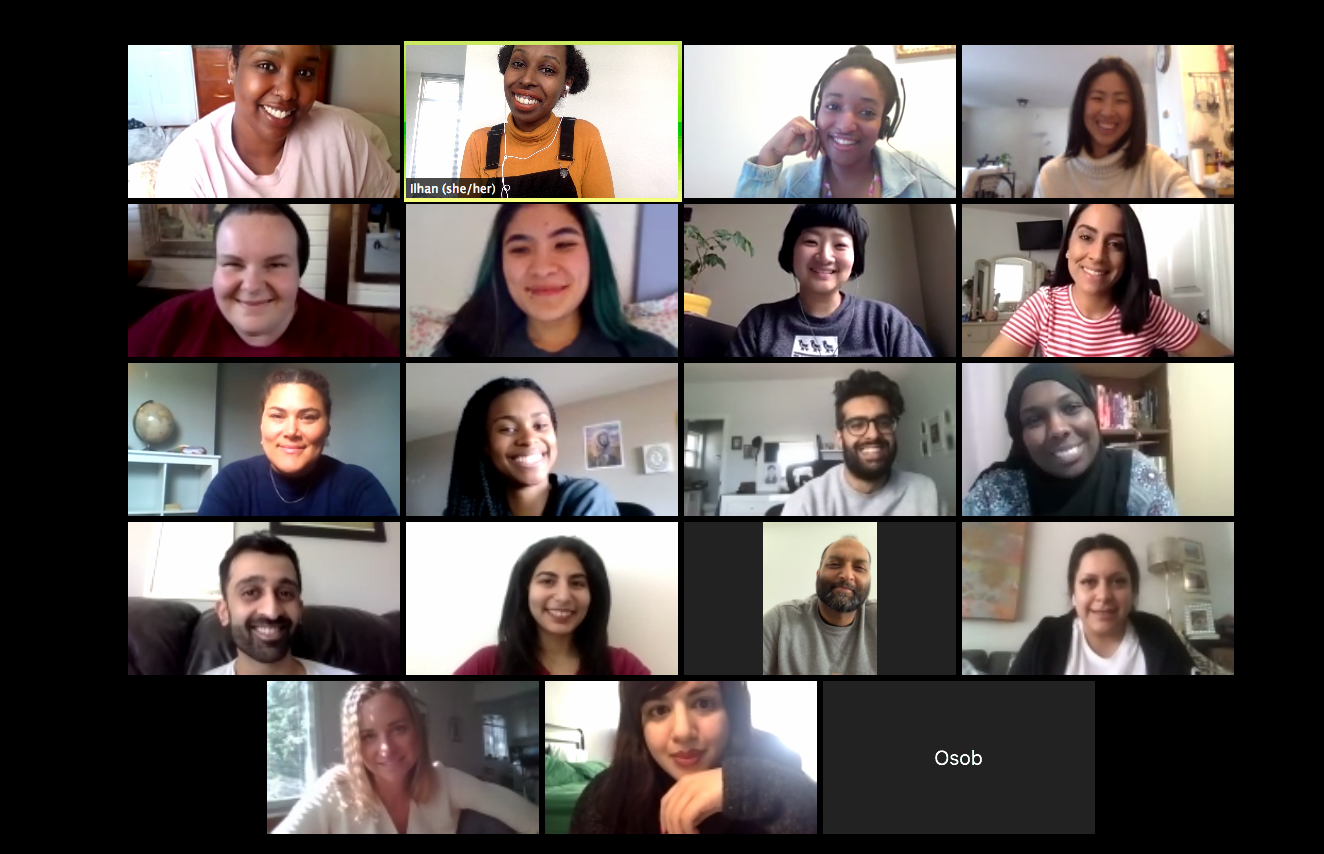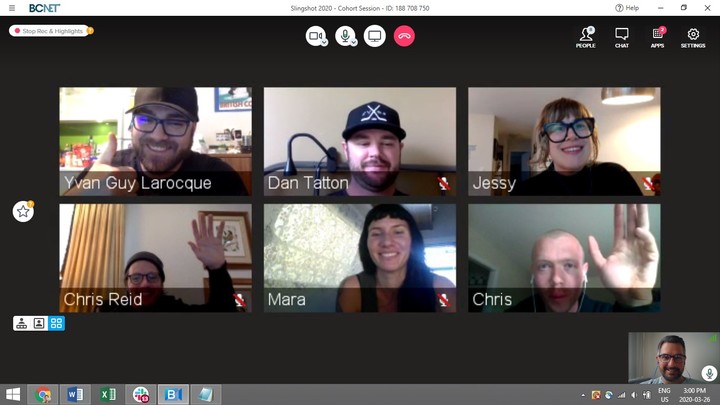“I’m just about done with Zoom calls right now.”
“It has been so nice seeing all your faces today!”
We all know that these are not normal times. As some businesses shut their doors, others are undergoing the transition to working from home. Both of the sentences above were uttered by RADIUS team members within the same hour, and they just about sum up how many of us are feeling.
Despite our inner struggles, we’re very fortunate to be able to carry out our programming online. Initially, many of our program managers decided it would be best to postpone their programs until the cohorts could meet in person. But to their surprise, the cohort participants unanimously decided to continue virtually – the monthly, bi-weekly, and weekly meetings helping to maintain a sense of routine and community that many of us have lost.
Below, each of our program managers reflect on how transitioning online over the past three weeks has been for themselves and their cohorts.

Ilhan Discusses Centering the Wishes of the Cohort When Transitioning Sessions Online
It’s been quite the journey these past couple of weeks! With the launch of our newest program, Reimagine Health, this period of uncertainty has challenged us to adapt as a community, cohort, and especially as human beings. With the sudden changes to social interactions that inform how we navigate our world, we’ve come to terms that change seems to be the only constant during this time. To determine how to best move forward with Reimagine Health programming, it was critical for us to centre the voices and experiences of our cohort in our next steps. We asked our cohort, advisors, and facilitators how they’d like to continue in this program, given their capacity, and it was decided that a transition to online programming isn’t such a bad idea! So far, we’ve hosted 2 of our monthly sessions online and the cohort was just as engaged, if not more.
As this program aims to connect with health equity seeking innovators and communities looking to address chronic disease prevention, we grappled with how a pandemic of this nature further impacts vulnerable communities. How will COVID-19 drive health disparities that are experienced by communities disproportionately impacted by health inequities- communities that our cohort is strongly connected to? How can we work together in solidarity to address these impacts? These are questions, tensions, and realities we’ll continue to explore while also meaningfully engaging and supporting our cohort and one another. We are so lucky to work and learn alongside this amazing cohort and support their work in addressing health inequities within their communities!
Aslam Reflects on Building Community Online
For the first time in the Fellowship’s history we’ve gone online! The Fellowship has always been about building community and relationships and given the unique position we found ourselves in, we had to ask ourselves if this is still something that can be done digitally. We put the question to our Fellows and together decided to give it a try. By thoughtfully customizing our Staff-Fellows social and in-person Tuesday evening sessions on-screen, we have learned how to make the most of the online platforms available. (Huge thanks to co-host, Laura Gaaysiigad Cuthbert’s brilliant digital creative know-how.) We’ve found Fellows just as engaged as ever and tackling rich material with grace and some patience. Times like this show that when we feel stretched thin our need for community and connection is more important than ever.
Nada Knows That Racialized Communities Are Hit Harder Than Most
During this time of great uncertainly and constant change, we made the decision to continue our RLL Trampoline: Ideas into Action sessions virtually. We recognize that racialized migrants and their communities are especially vulnerable at this time. As a result, we took sometime to pause, slow down, and make sure our cohort members and their wellbeing are our priority. We also agreed to extend the timeline of our program to allow for added sessions and ensure proper support for cohort members. The cohort this year consists of some incredible folks who are deeply connected to migrant communities and are adamant to continue working on their projects and find ways to support their communities. We are grateful to have the means to continue with Trampoline and to be in service to marginalized communities. We will continue to be in conversation with our cohort, advisors, and team to make sure we are showing up and responding to the needs and the changes in the best way we can.

VJ is Thinking About How to Support Small Businesses
The Slingshot 2020 cohort made its transition to a virtual classroom for our end of March meeting. Although we’re facing uncertain times, the ventures showed incredible resilience in not only fully being present in the virtual classroom, but also how they’re continuing to manage and run their businesses. All of our speakers (Vancity, MT&Co, Cordova Street, and On Track) showed up not only to discuss their content but incorporate how it’s applicable to the situation at hand. There were a lot of Q&A about resources and relief available to these ventures. A session on Sales was particularly inspiring as it encouraged ventures to “stay in their lane”- as in continue doing the best they can to serve their communities; whether that means re-positioning their messaging, taking a pause to prepare for “normality” once it’s back, or to pivot the business in a new way to match our new reality; keeping in mind the short and long term vision. RADIUS is excited to support the Slingshot cohort through these times and working to deliver our program in the best way possible going forward!
